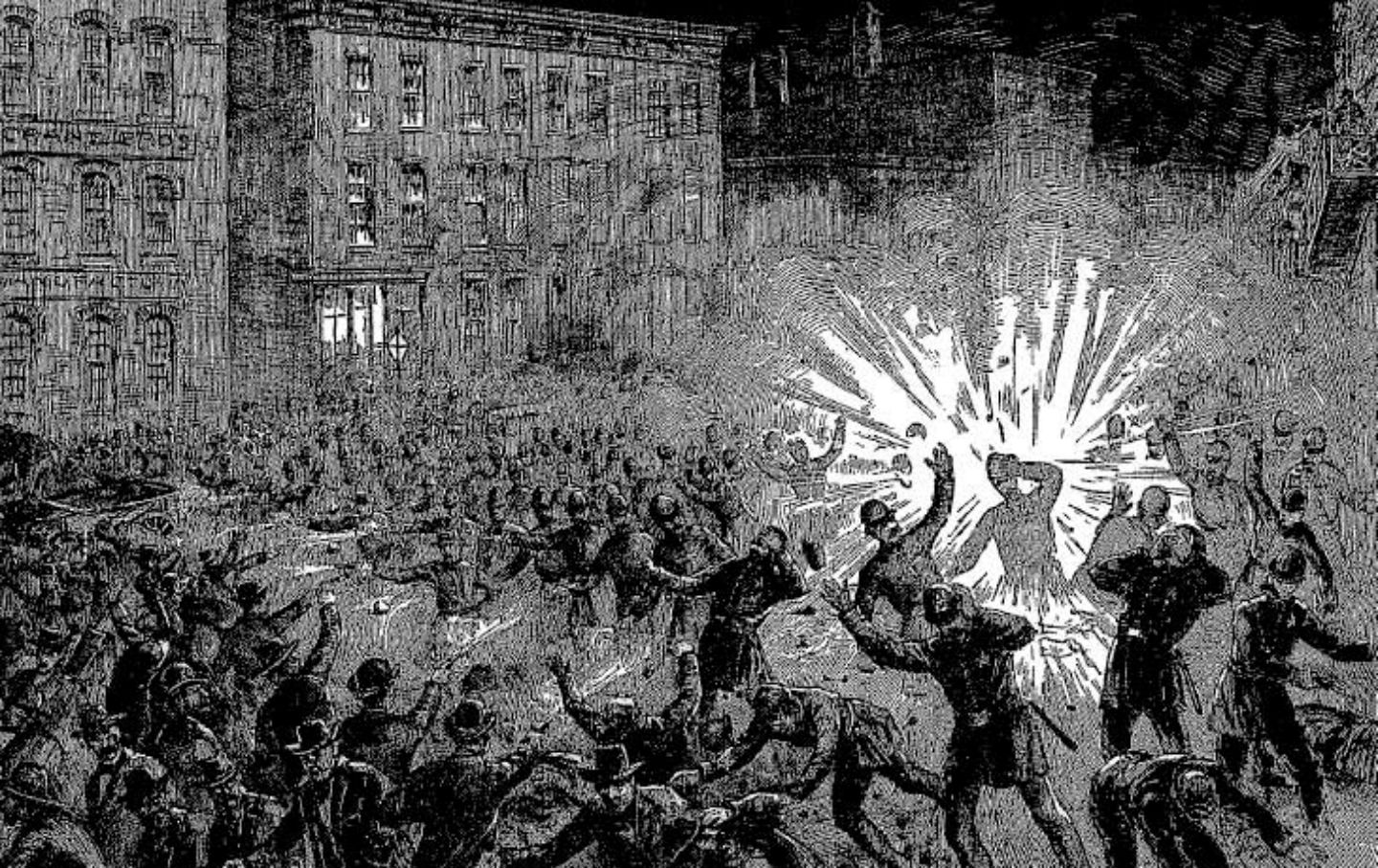
May 4, 1886: A Riot Erupts in Haymarket Square in Chicago May 4, 1886: A Riot Erupts in Haymarket Square in Chicago
For its first fifty years The Nation was not quite the friend to workers and organized labor that it is today. Rather it was perhaps the leading American proponent of the laissez-faire school of Manchester liberalism which prescribed minimal regulation and free trade and warned against organized labor. This editorial note, appearing after the dust had begun to settle in Haymarket Square, where a bomb allegedly thrown at the police by anarchists killed eight people, does not specifically mention the riot or Chicago, but its pertinence to what the editors elsewhere in the issue call “the events of the past fortnight” is obvious. Needless to say, The Nation would likely strike a different tone today. When we get outside the law, and begin to allow ever so little intimidation or coercion to be practised by either individuals or organizations for purposes of their own, we begin a descent at the bottom of which is anarchy—that is, arson, pillage, and murder, revolvers, rifles, and bombs…. It is mere folly to suppose that we can in this country have a little lawlessness, or have lawlessness for special occasions and no others. It is something from which communities must abstain together if they do not intend to drink deep of it. May 4, 1886 To mark The Nation’s 150th anniversary, every morning this year The Almanac will highlight something that happened that day in history and how The Nation covered it. Get The Almanac every day (or every week) by signing up to the e-mail newsletter.
May 4, 2015 / Richard Kreitner and The Almanac

May 3, 1933: James Brown, Godfather of Soul, Is Born May 3, 1933: James Brown, Godfather of Soul, Is Born
“Swell packages aside, the ultimate thing about James Brown is the contradiction-healing groove,” a Nation critic once observed. “It’s like a brief return t...
May 3, 2015 / Richard Kreitner and The Almanac
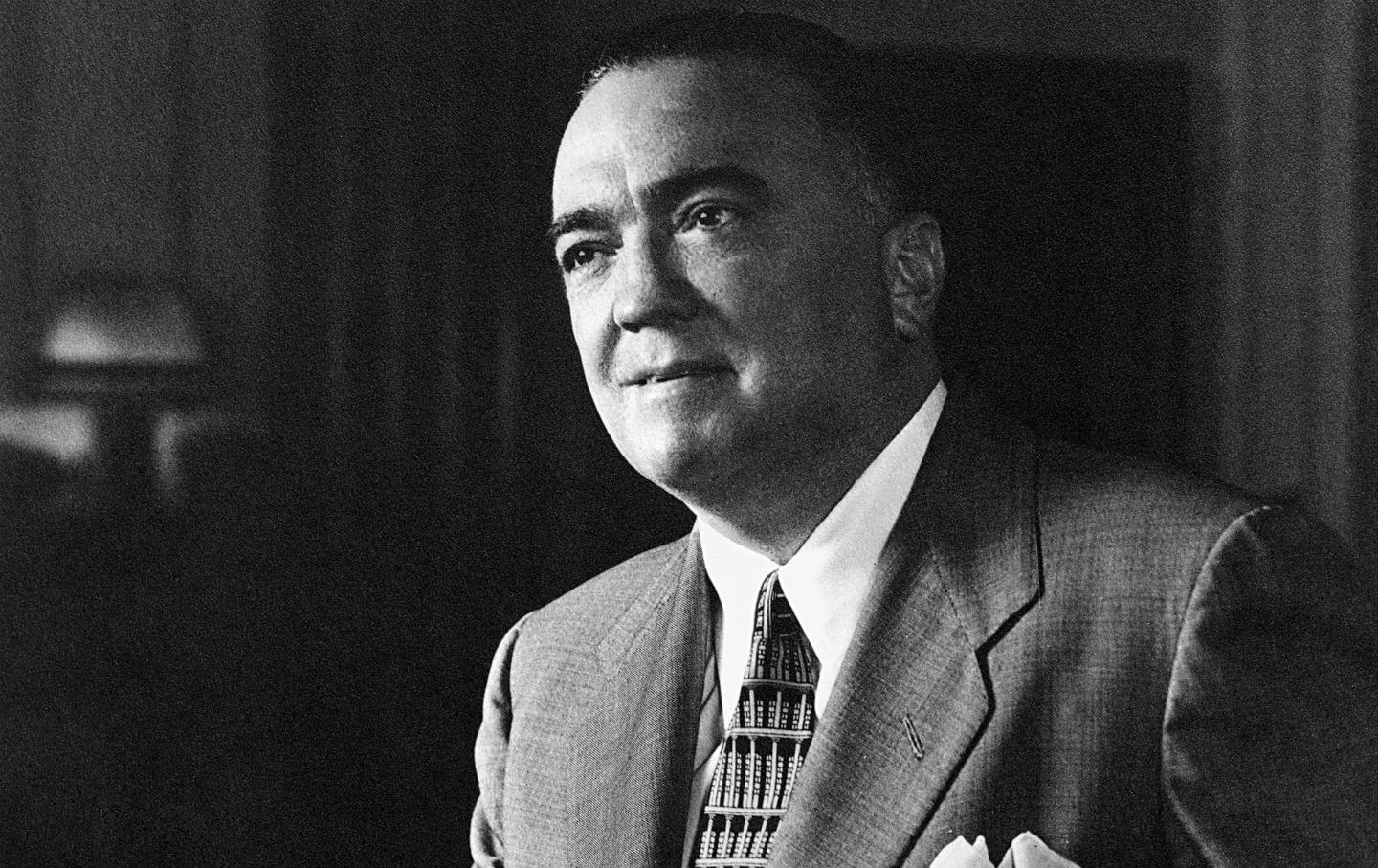
May 2, 1972: J. Edgar Hoover Dies May 2, 1972: J. Edgar Hoover Dies
"Hoover was not only the nation’s police chief; he filled a far more important post—he was its minister of internal security, an office of tremendous, if unacknowledged, power."
May 2, 2015 / Richard Kreitner and The Almanac

May 1, 1941: ‘Citizen Kane’ Is Released May 1, 1941: ‘Citizen Kane’ Is Released
“Hollywood will for a long time be in debt to Mr. Welles,” The Nation’s review predicted.
May 1, 2015 / Richard Kreitner and The Almanac
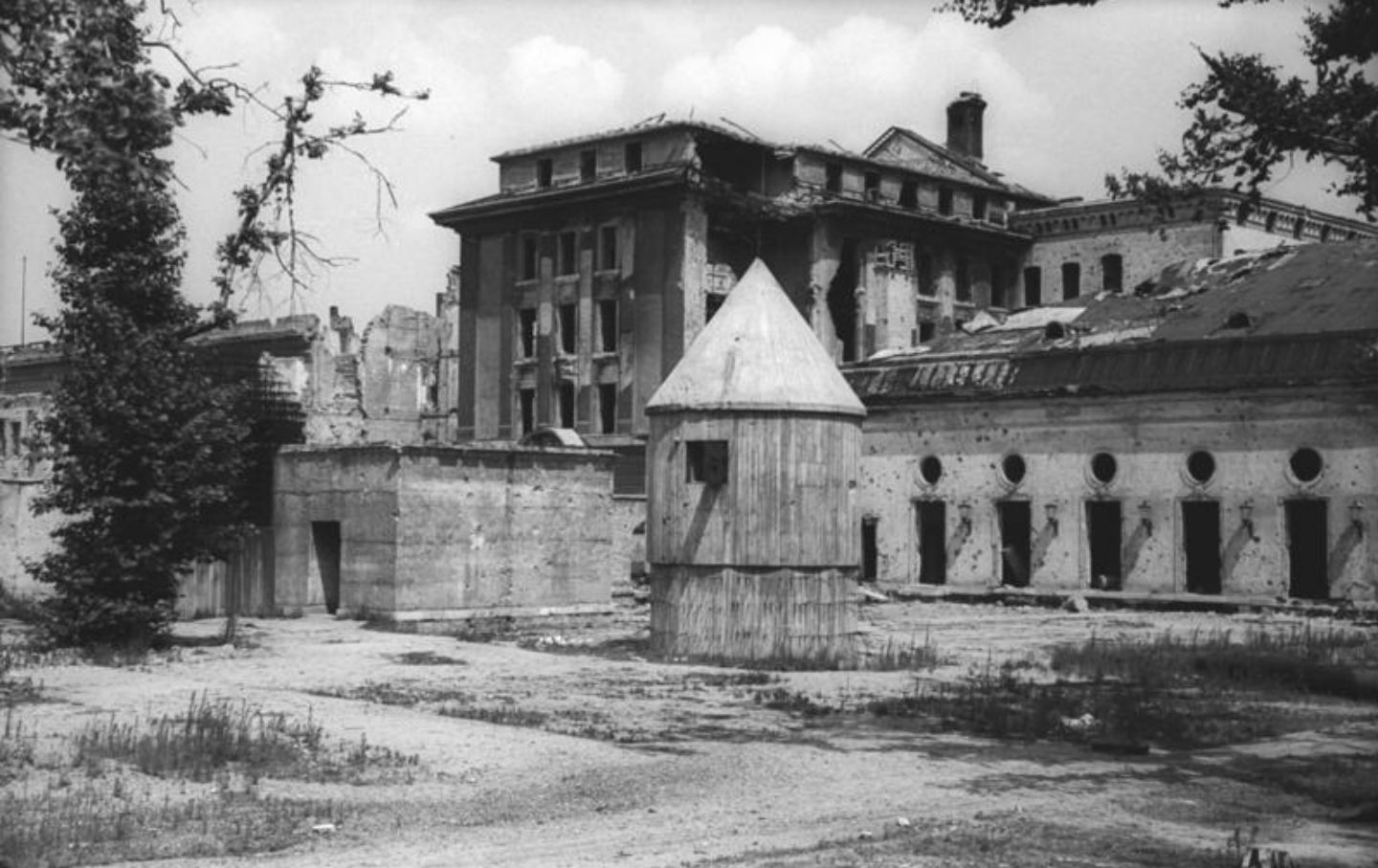
April 30, 1945: Adolf Hitler Commits Suicide in a Berlin Bunker April 30, 1945: Adolf Hitler Commits Suicide in a Berlin Bunker
“It was once German and may be German again,” Thomas Mann wrote in The Nation, “to win respect and admiration by the human contribution, by the power of the sover...
Apr 30, 2015 / Richard Kreitner and The Almanac
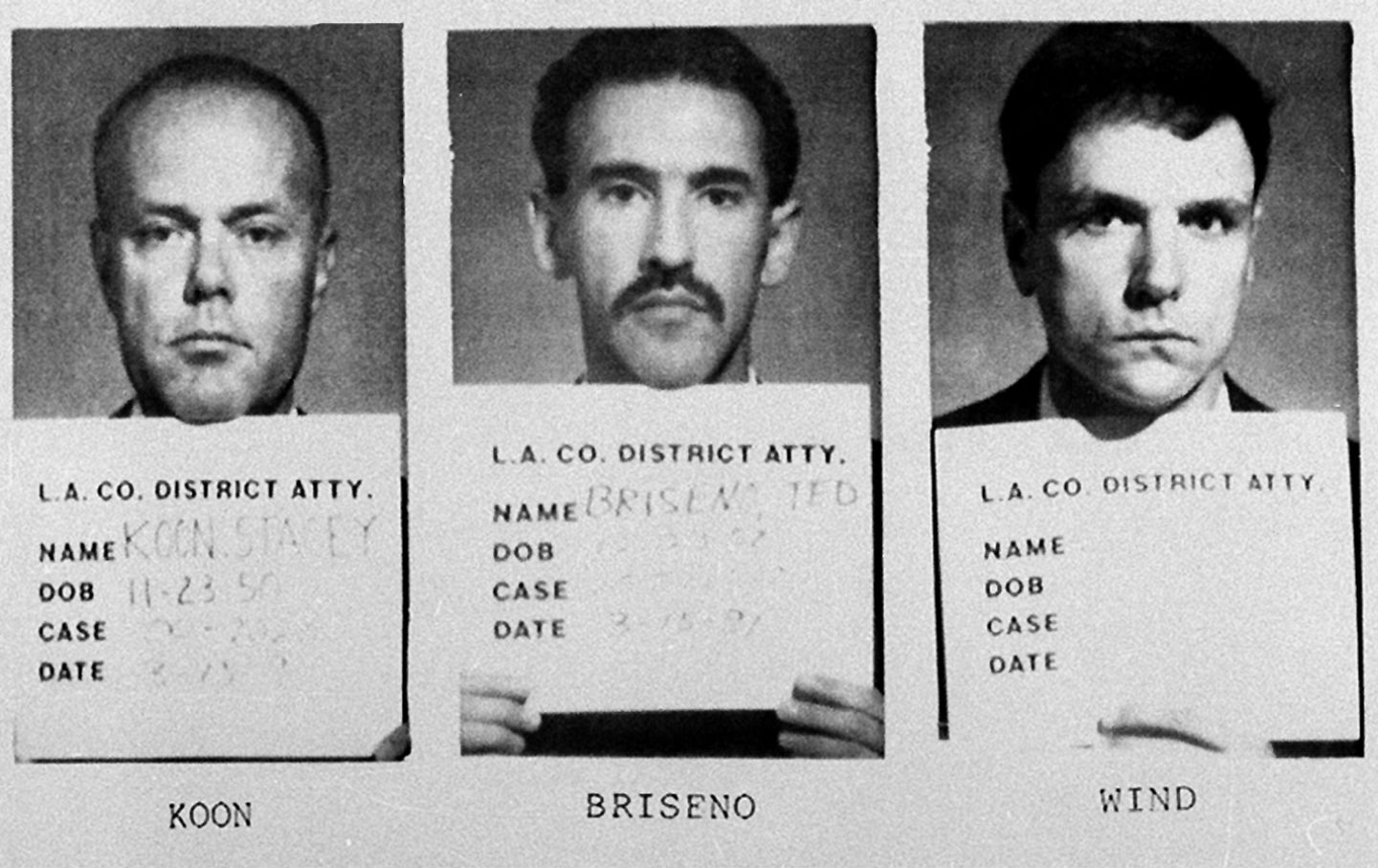
April 29, 1992: Four LAPD Officers Who Beat Rodney King Are Acquitted, Prompting Riots April 29, 1992: Four LAPD Officers Who Beat Rodney King Are Acquitted, Prompting Riots
“Rodney King is the symbol that links unleashed police racism in Los Angeles to the crisis of black life everywhere.”
Apr 29, 2015 / Richard Kreitner and The Almanac
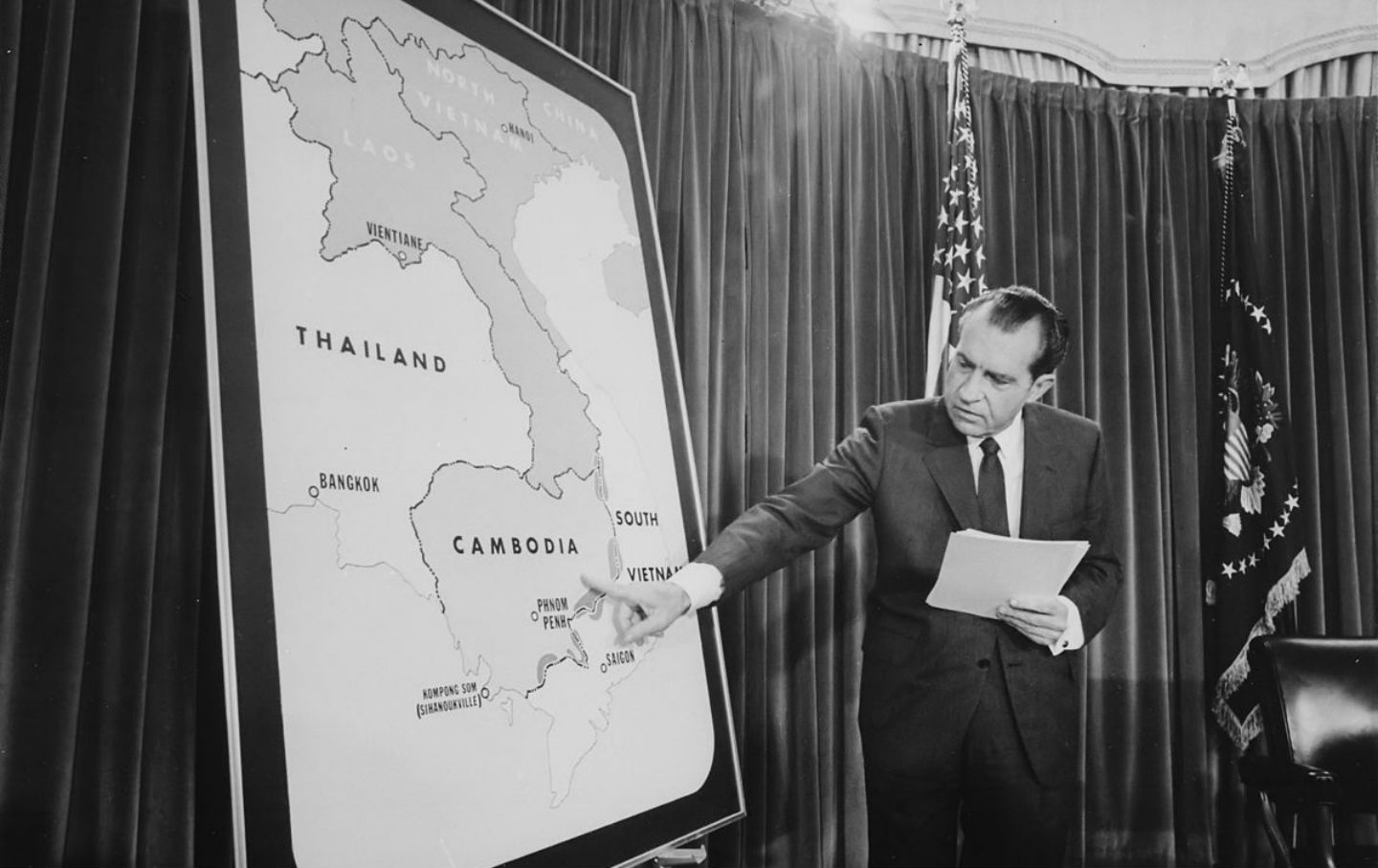
April 28, 1970: President Richard Nixon Approves a US Invasion of Cambodia April 28, 1970: President Richard Nixon Approves a US Invasion of Cambodia
“The decisive confrontation between the constitutionalists who want peace and the militarists who want war is close at hand.”
Apr 28, 2015 / Richard Kreitner and The Almanac
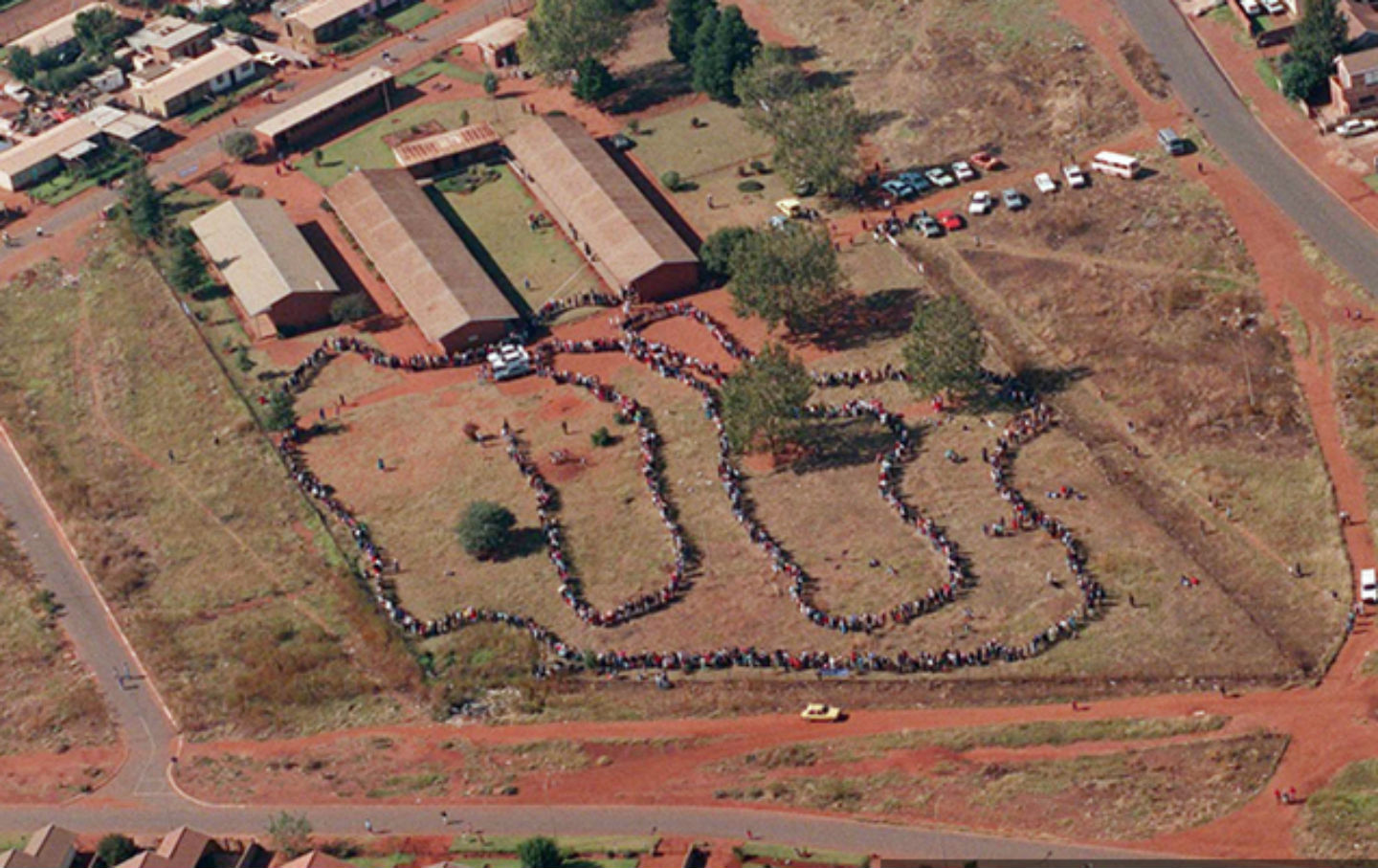
April 27, 1994: South Africa Holds Its First Free Election After the End of Apartheid April 27, 1994: South Africa Holds Its First Free Election After the End of Apartheid
"It was as if all South Africans, black, white and “coloreds” alike, were voting for the first time in their lives."
Apr 27, 2015 / Richard Kreitner and The Almanac
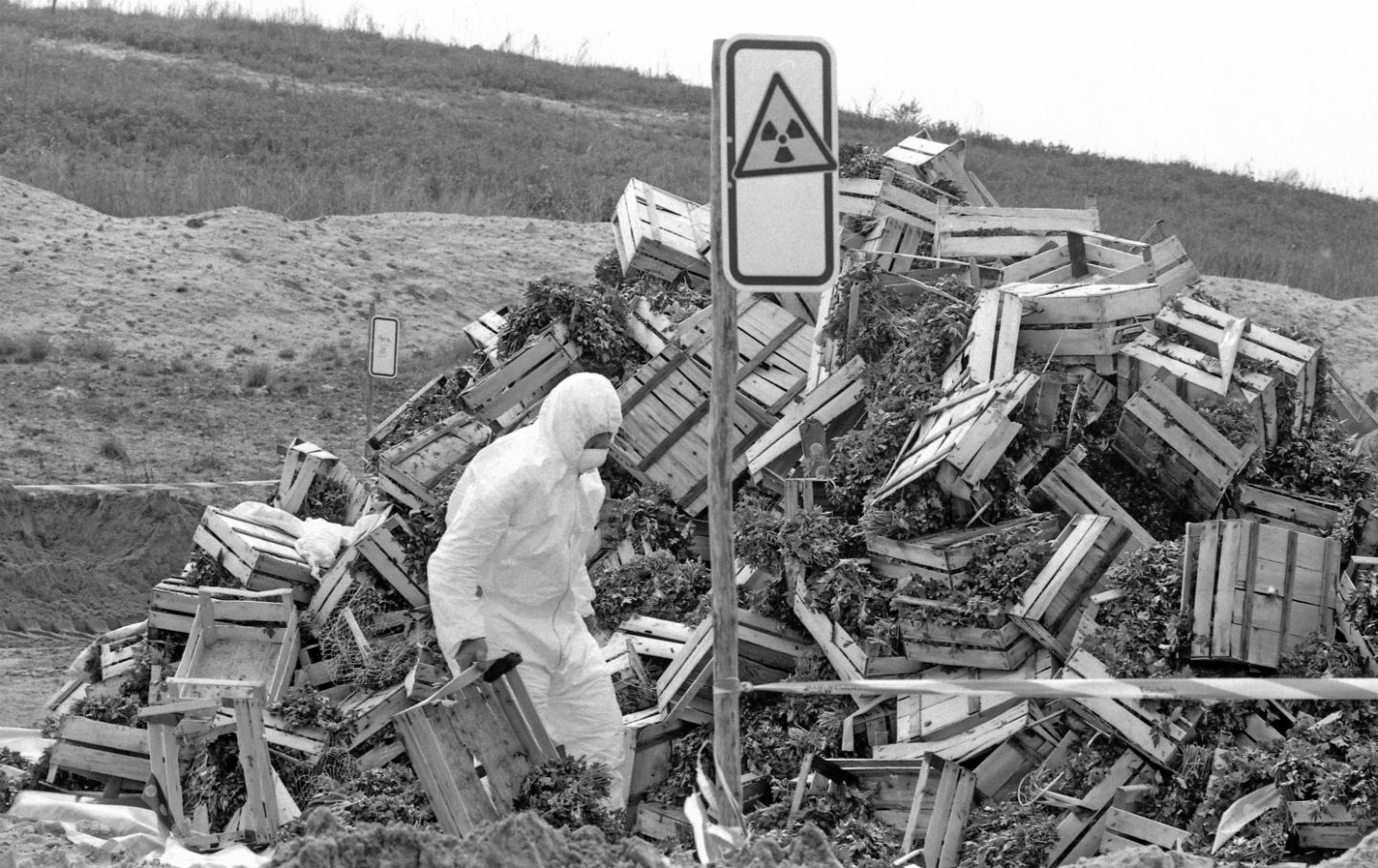
April 26, 1986: Catastrophic Nuclear Accident at Chernobyl April 26, 1986: Catastrophic Nuclear Accident at Chernobyl
A series of explosions and fires at the nuclear plant in Chernobyl caused a massive plume of fallout to spread across Russia and Europe, leading to dozens of deaths of immediate deaths, thousands of additional radiation-caused fatalities, and hundreds of thousands of evacuations. In an editorial (May 10, 1986), The Nation heralded what it hoped would be the beginning of the end of the age of nuclear power. Alas, we yet await the nuclear disaster that will finally convince people around the world that it may be time for a change. The Chernobyl accident is, by early accounts, the worst to date, and it is very bad news for the Russians, who handled it poorly from the start. But it is also bad news for the scores of other countries where reactors are already working or under construction or planned. Whatever the weather patterns, we are all downwind from Chernobyl…. The politics of nuclear power will surely produce attempts to stop the spread of new plants and perhaps curb the proliferation of weapons as well. Already Sweden plans to phrase out its nuclear industry by the early twenty-first century. In 1978 Austrians voted to bar a completed facility from going on line. Only citizen-based environmental action movements have challenged the containment structure of secrecy that the nuclear establishments, both East and West, built to shield their work from the beginning. Activist groups in several American states are fighting the construction or operation of nuclear plants, including the Shoreham station in New York and Seabrook in New Hampshire. Depressed oil prices and exorbitant construction costs are taking their toll. Antinuclear activists always said that it would take a major accident to convince the world that atomic power is unsafe in any form. At Chernobyl we may have witnessed the dawn of the postnuclear age. April 26, 1986 To mark The Nation’s 150th anniversary, every morning this year The Almanac will highlight something that happened that day in history and how The Nation covered it. Get The Almanac every day (or every week) by signing up to the e-mail newsletter.
Apr 26, 2015 / Richard Kreitner and The Almanac
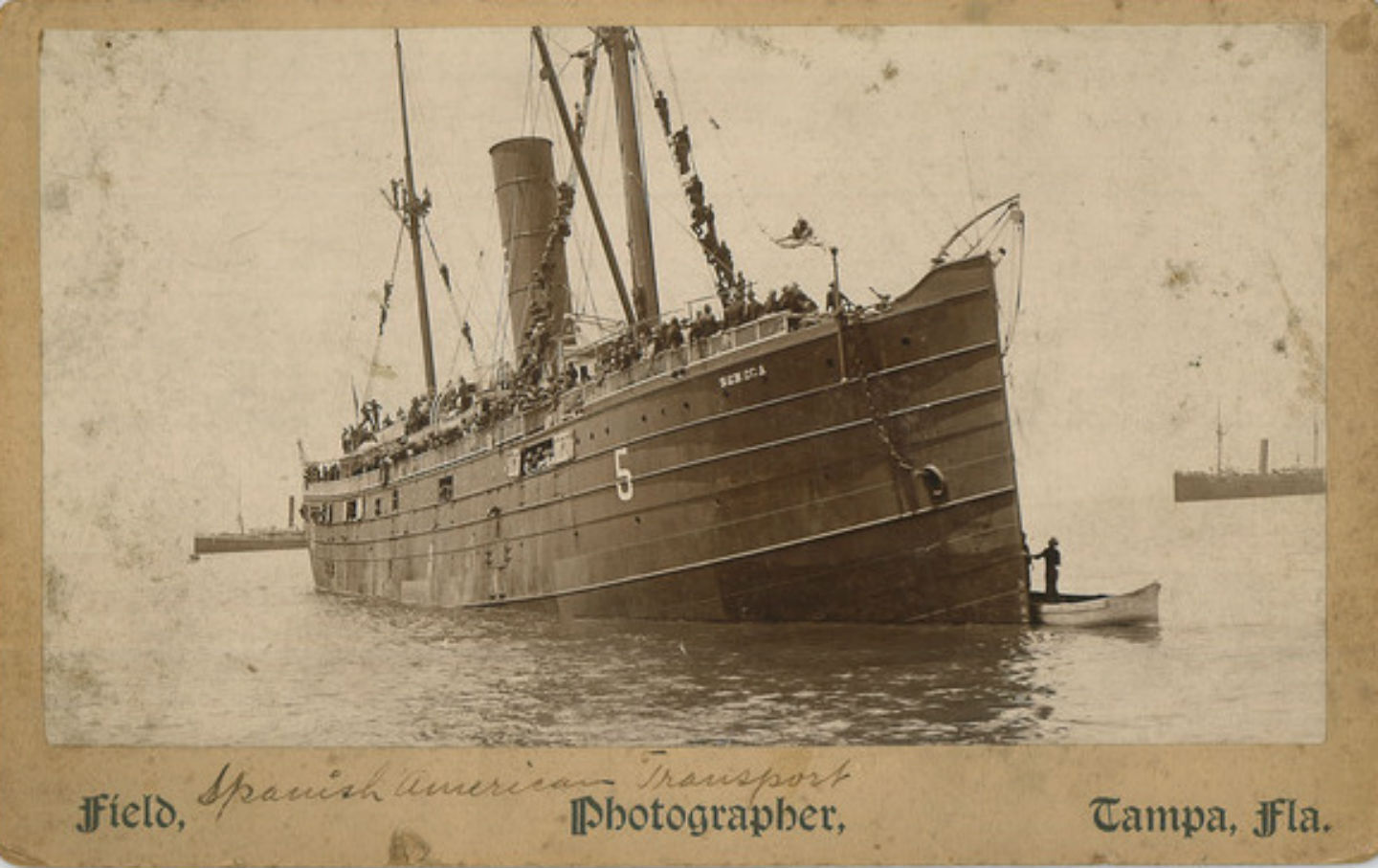
April 25, 1898: The US Declares War on Spain April 25, 1898: The US Declares War on Spain
“Are there no gentlemen left in in American public life?”
Apr 25, 2015 / Richard Kreitner and The Almanac
